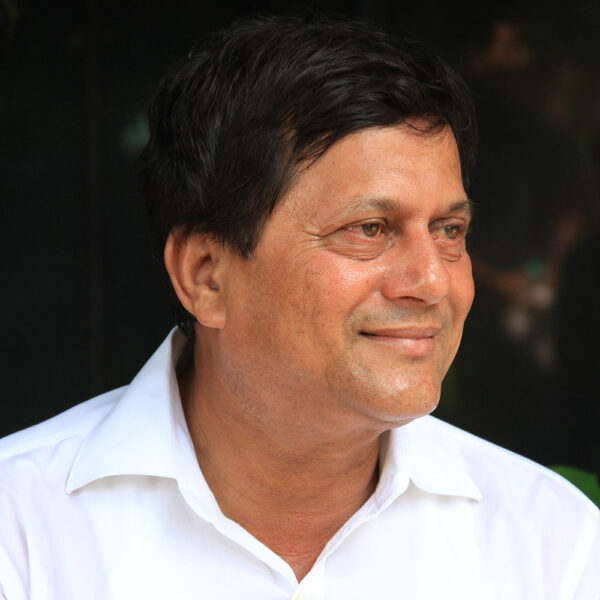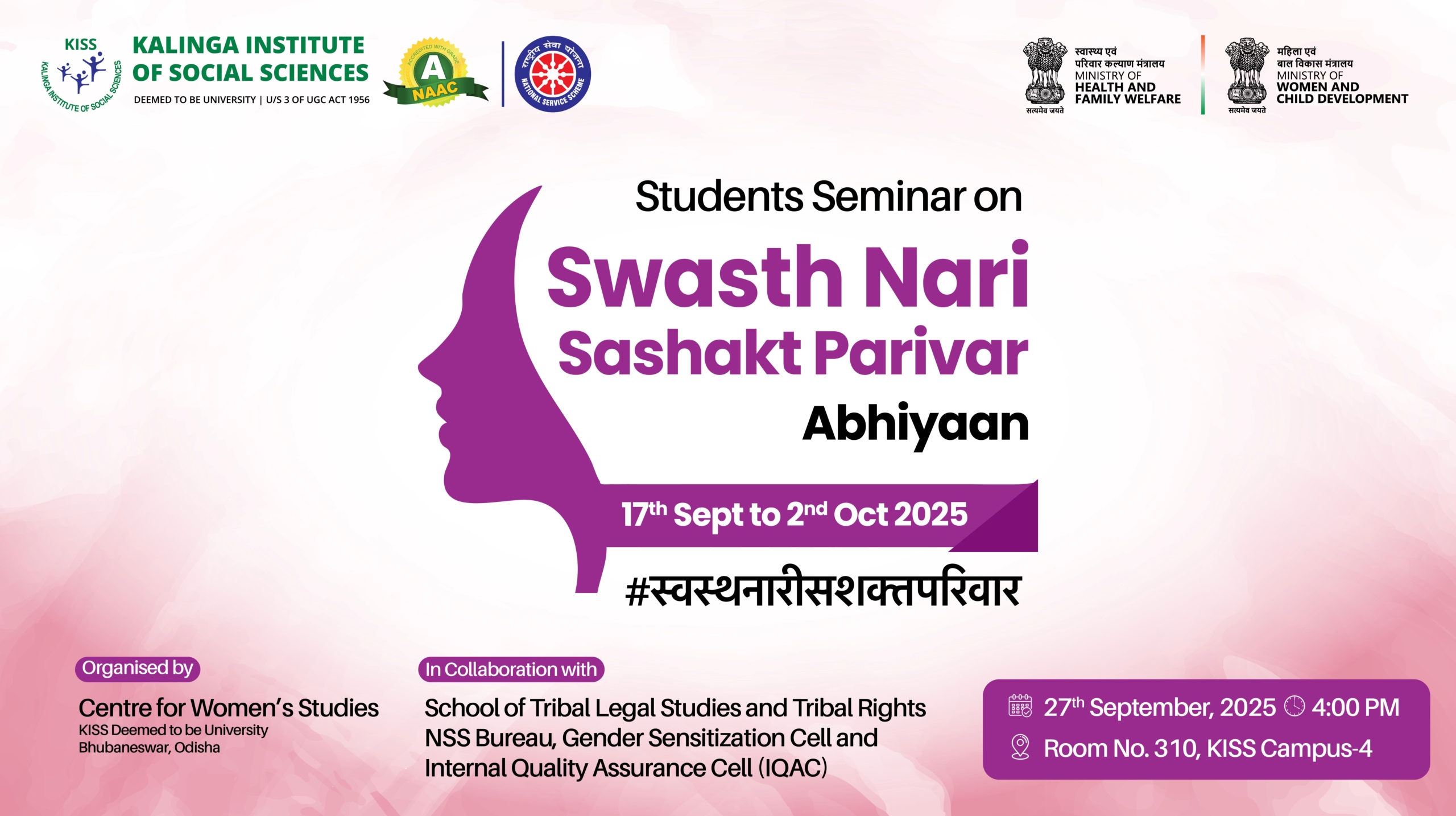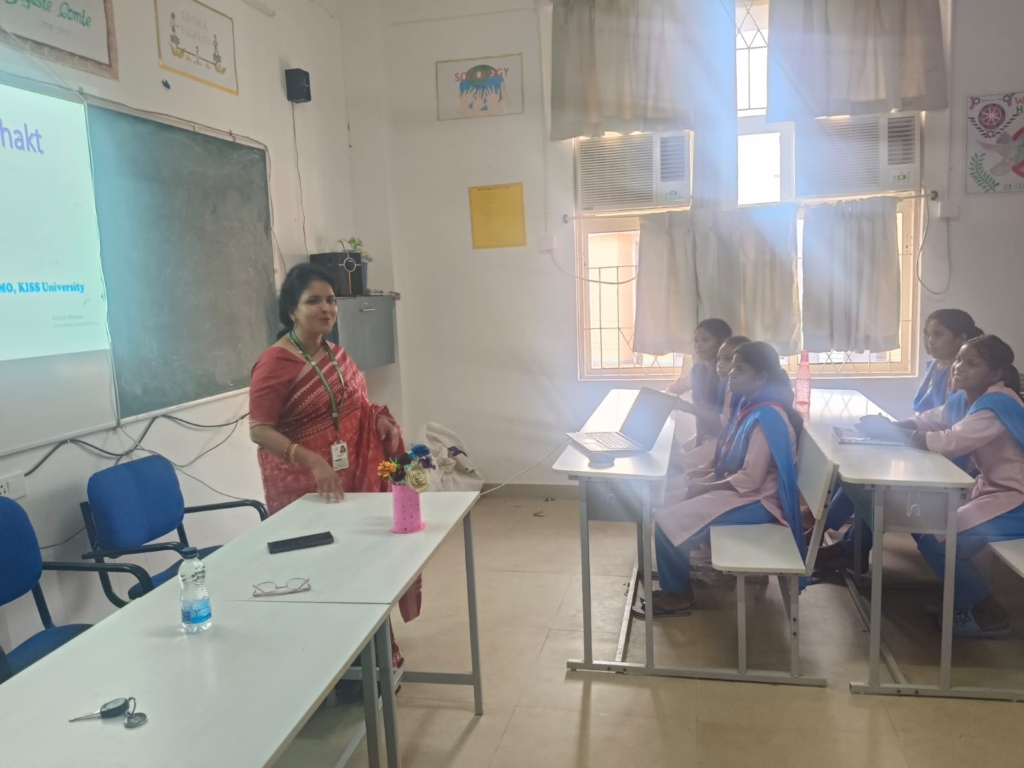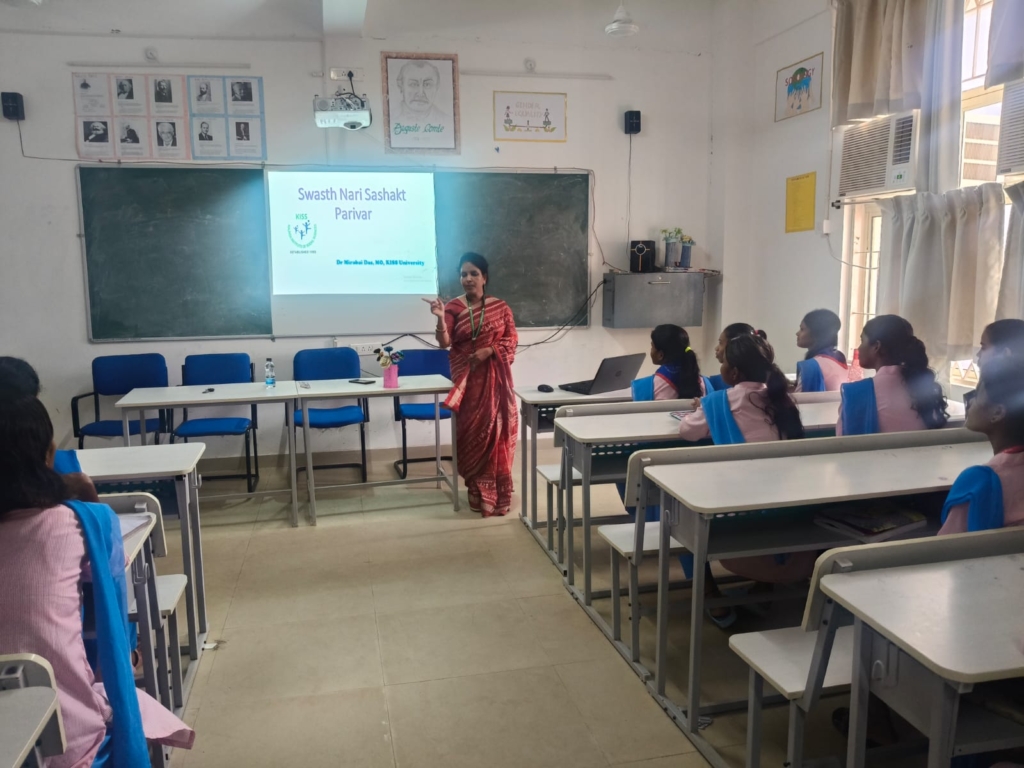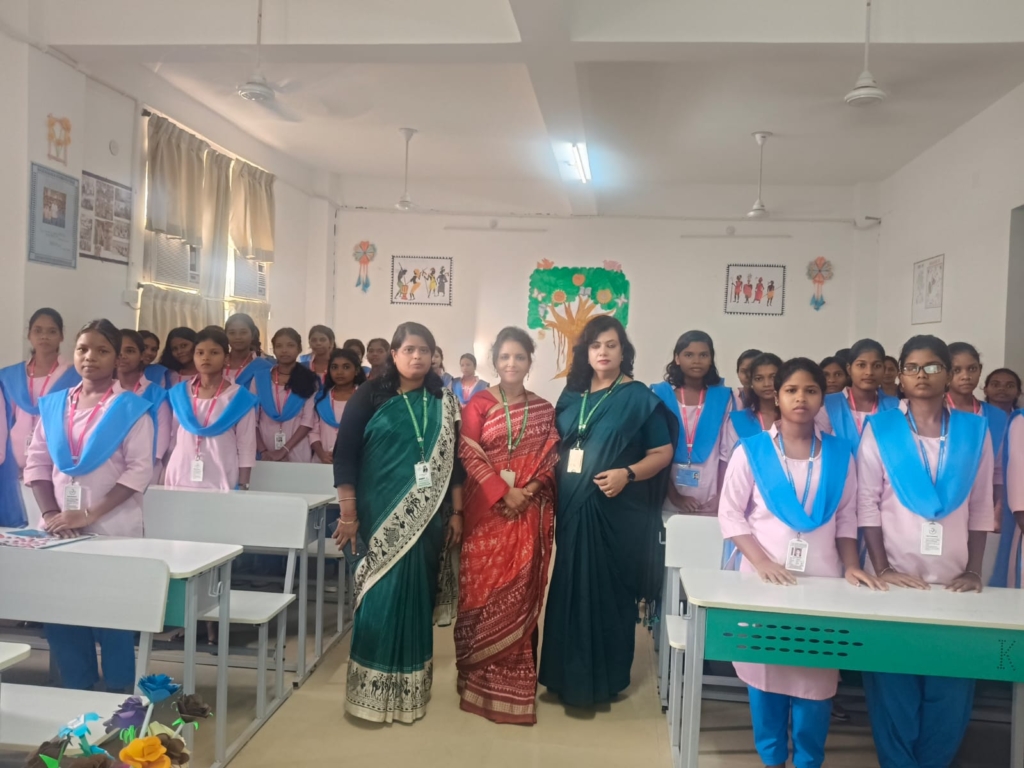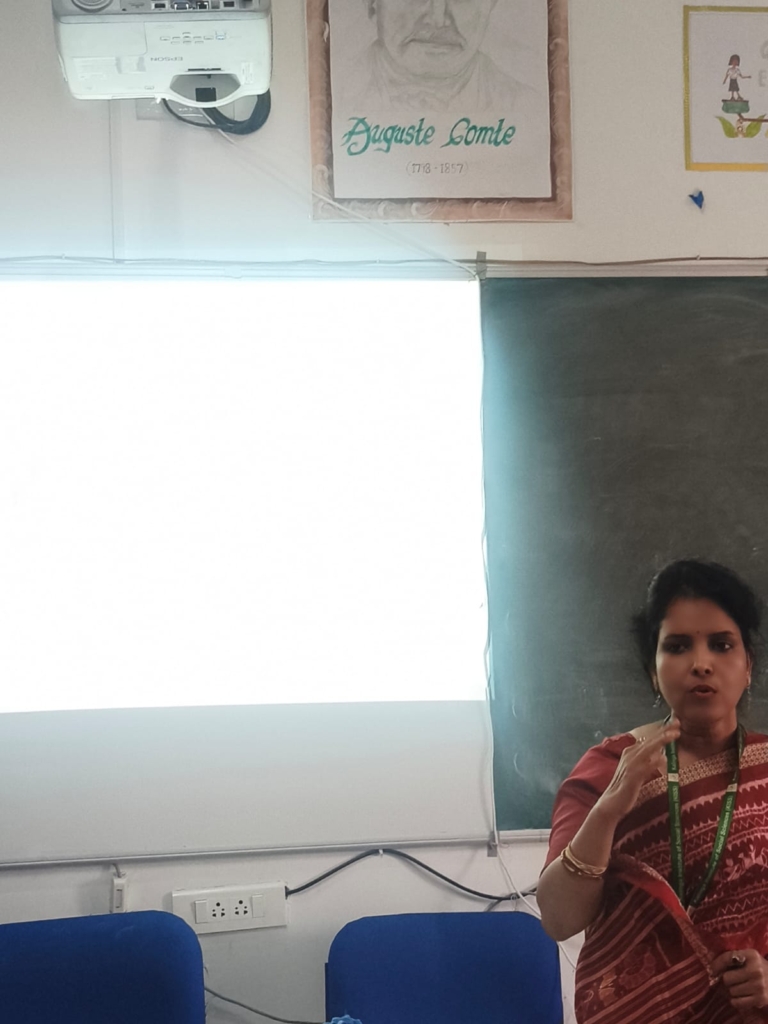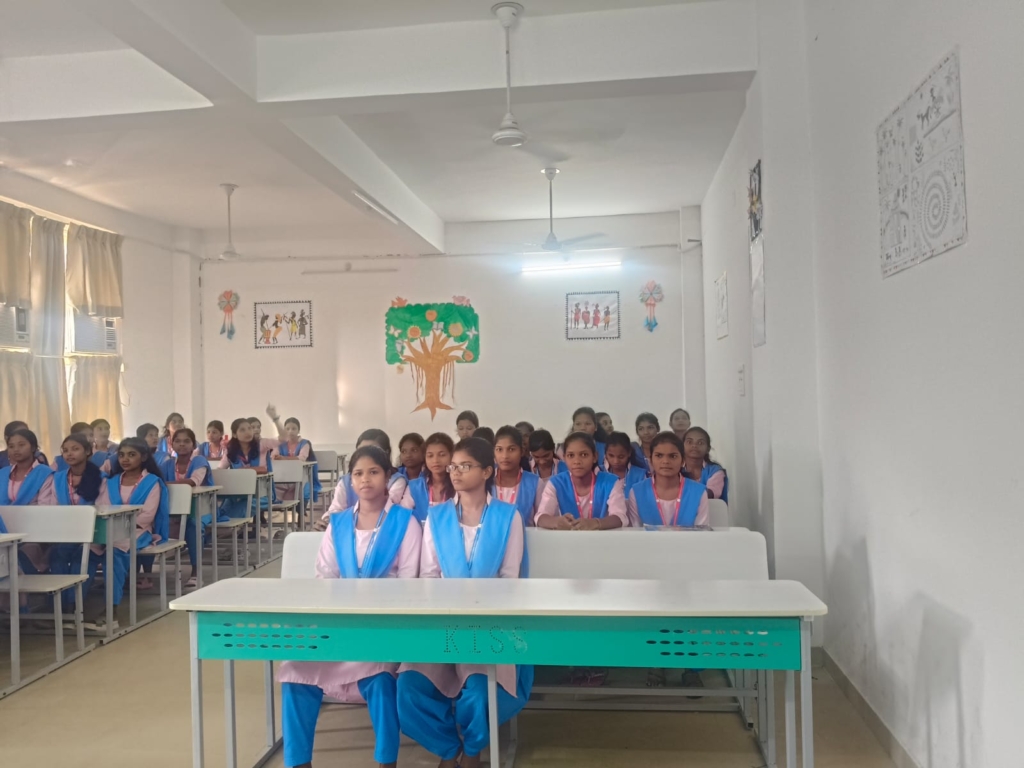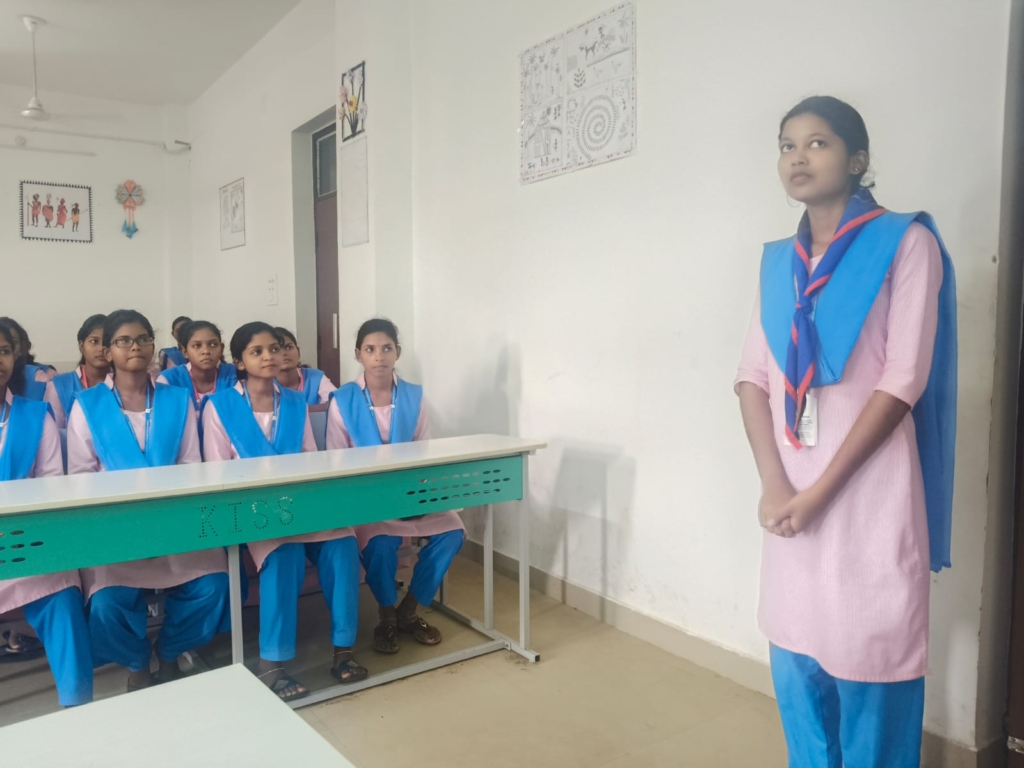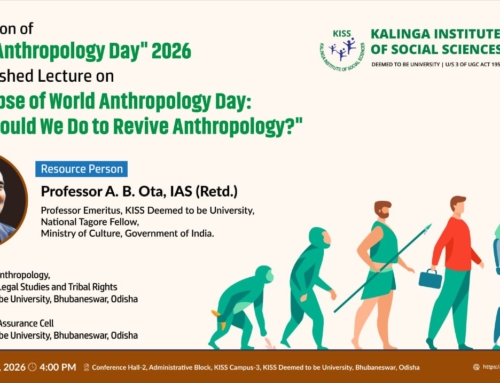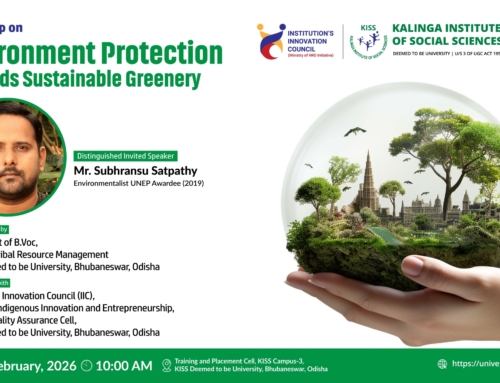The Centre for Women’s Studies, in collaboration with the NSS Wing, School of Tribal Legal Studies and Tribal Rights (STL&TR), the Gender Sensitization Cell, and the Internal Quality Assurance Cell (IQAC) of Kalinga Institute of Social Sciences ( KISS) Deemed to be University (KISS-DU), organized a student seminar to observe and promote the Ministry of Health, Government of India’s initiative “Swasth Nari, Sashakt Parivar”, launched under the visionary leadership of the Hon’ble Prime Minister Shri. Narendra Modi.
This national initiative underscores the critical importance of women’s health and aims to highlight the pervasive health-related lacunae affecting women and girls across the country. Acknowledging that a healthy woman is the cornerstone of a strong and empowered family, the campaign focuses on awareness, education, and action toward improved health outcomes for women.
The event at KISS-DU commenced with a welcome address by Dr. Pragyan Mohanty, Dean, School of Tribal Legal Studies and Tribal Rights and Head, Centre for Women’s Studies. In her opening remarks, Dr. Mohanty spoke about various taboos and myths surrounding women’s health. She strongly urged students to adopt a scientific temper and approach health-related issues with rationality, discarding harmful superstitions and cultural misconceptions.
The seminar featured engaging and thought-provoking presentations by two student NSS volunteers:
- Ms. Durgee Murmu, a second-year postgraduate student from the Department of Anthropology, highlighted the societal expectations placed upon women and how these roles often impact their physical and mental well-being. She emphasized that a healthy woman is essential for nurturing a healthy and progressive family, advocating for greater recognition and support for women’s health needs.
- Ms. Laxmipriya Majhi, a second-year postgraduate student from the Department of Education, spoke on the ill effects of poor nutrition and irregular eating habits among women. She stressed how malnutrition and neglect of personal health can have long-term consequences, not just for the individual but for society as a whole. She also reaffirmed her commitment, as an NSS volunteer, to raise awareness about women’s health within the community.
The resource person for the event, Dr. Mirabai Das, delivered a compelling lecture rich in real-life experiences and case studies. Her talk focused on a range of pressing health issues that disproportionately affect women and girls, including anemia, menstrual health, nutritional deficiencies, and the lack of access to basic healthcare services. Dr. Das emphasized the importance of regular health check-ups, education, and early intervention in ensuring a healthier future for women.
The event concluded with an interactive session where students posed insightful questions, reflecting their engagement and interest in promoting women’s health and welfare. The seminar served as a powerful platform to sensitize students and faculty on the urgent need to prioritize women’s health as a foundation for building a stronger and more equitable society.
The “Swasth Nari, Sashakt Parivar” initiative, as reflected through this seminar, resonates deeply with the university’s commitment to holistic education, community engagement, and gender equity.
The vote of thanks was delivered by Dr.Maitri Padhi, of the Department of Sociology, STLS&TR and the NSS Co-Ordinator, KISS-DU.

